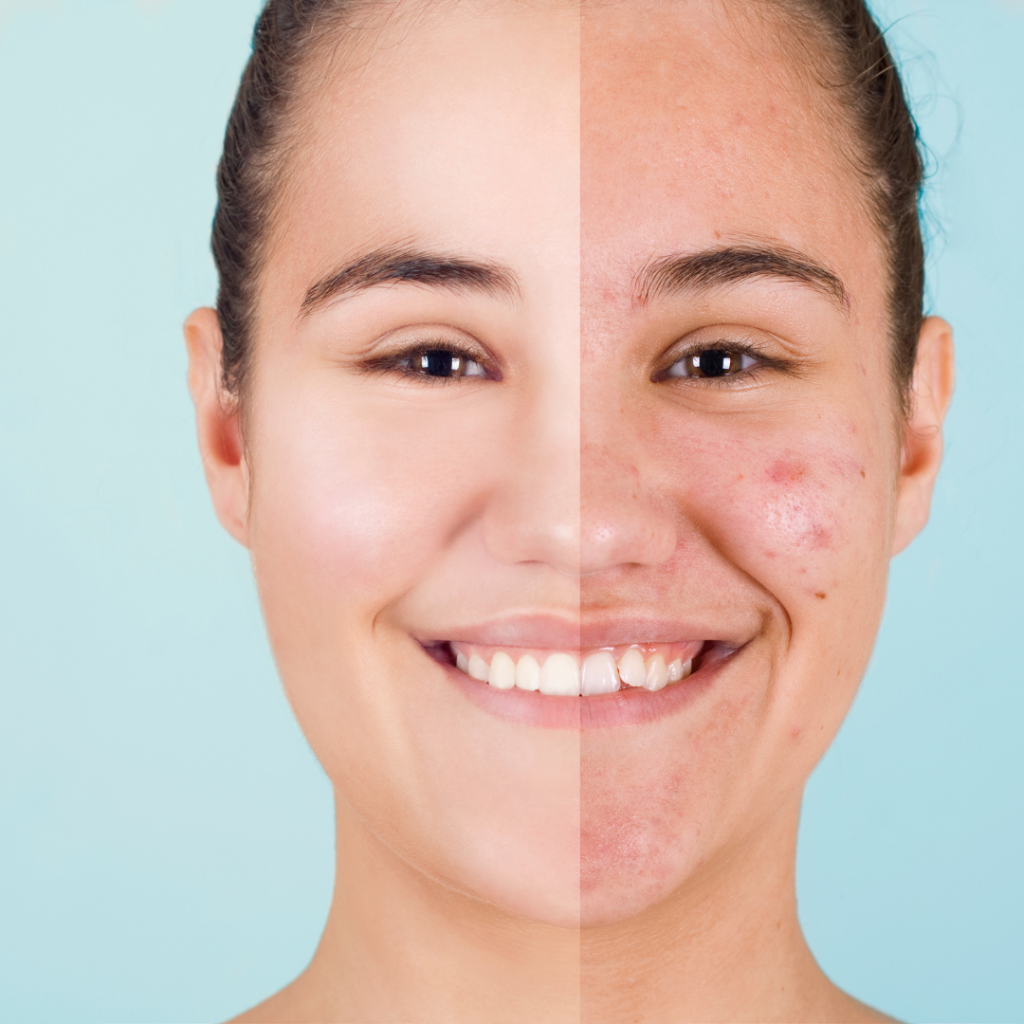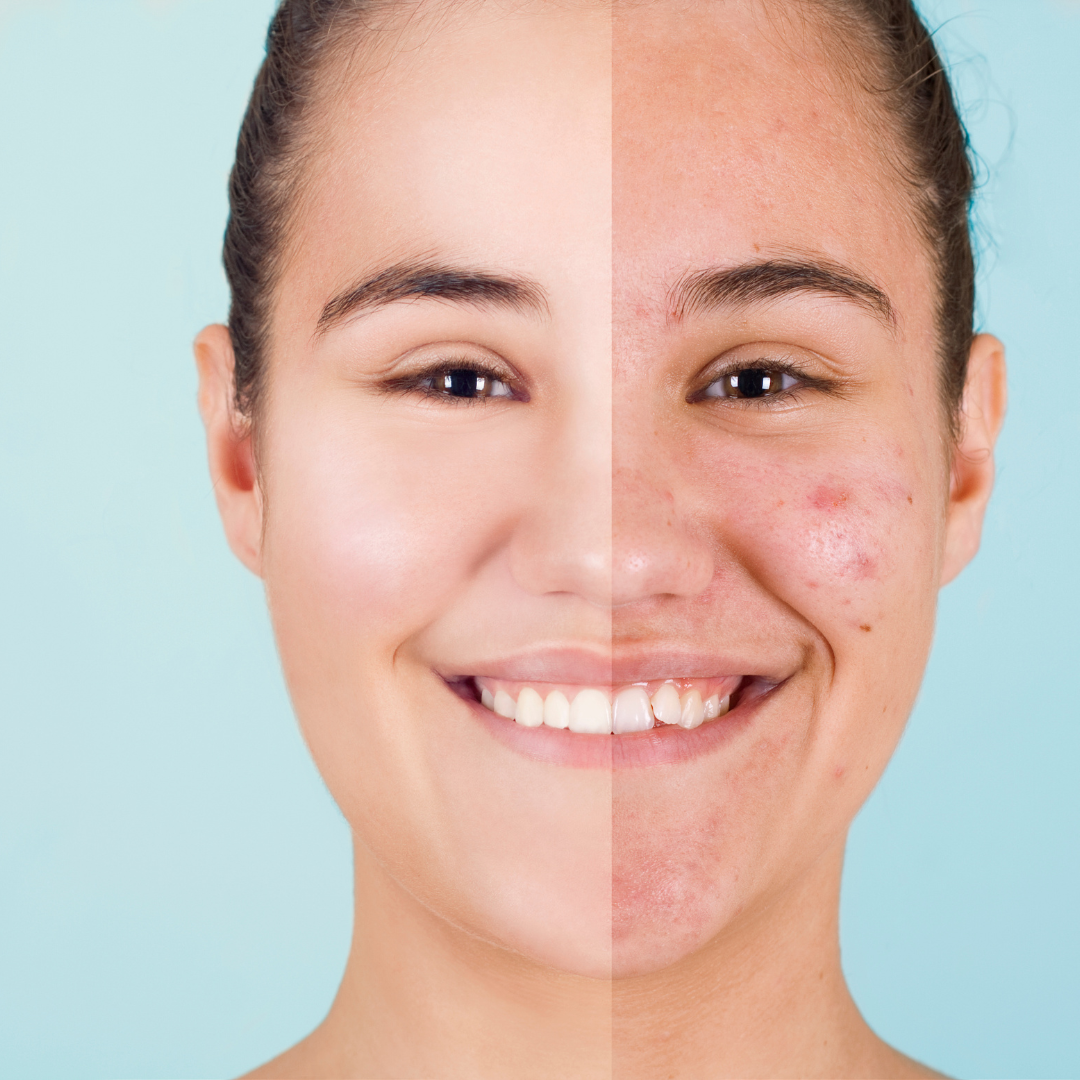
Acne is a common skin condition that affects people of all ages and can be caused by a variety of factors. Acne is characterized by the presence of pimples, blackheads, and whiteheads on the skin. In this topic, we will discuss the causes and treatments of acne.
1. Hormones: Acne is often associated with changes in hormone levels. During puberty, the body produces more androgens, which can stimulate the oil glands in the skin and cause acne.
2. Genetics: Acne can also be genetic, meaning that if your parents or other family members have had acne, you may be more likely to develop it.
3. Diet: Some studies have shown that certain foods, such as dairy products and high glycemic index foods, may contribute to the development of acne.
4. Stress: Stress can cause the body to produce more cortisol, a hormone that can stimulate the oil glands in the skin and lead to acne.
5. Bacteria: Propionibacterium acnes, a type of bacteria that lives on the skin, can contribute to the development of acne.
Treatments for Acne:
1. Over-the-counter treatments: There are a variety of over-the-counter acne treatments that can be effective for mild to moderate acne. These treatments may include benzoyl peroxide, salicylic acid, and alpha-hydroxy acids.
2. Prescription medications: For more severe acne, prescription medications may be necessary. These may include topical or oral antibiotics, topical or oral retinoids, or hormonal therapies.
3. Professional treatments: Some people may benefit from professional treatments, such as chemical peels, microdermabrasion, or laser therapy.
4. Lifestyle changes: Making certain lifestyle changes, such as reducing stress, avoiding certain foods, and keeping the skin clean and moisturized, can also help to prevent and treat acne.
In conclusion, acne is a common skin condition that can be caused by a variety of factors. Effective treatment often involves a combination of over-the-counter and prescription medications, professional treatments, and lifestyle changes. It is important to work with a healthcare provider or dermatologist to determine the best treatment plan for your individual needs.

